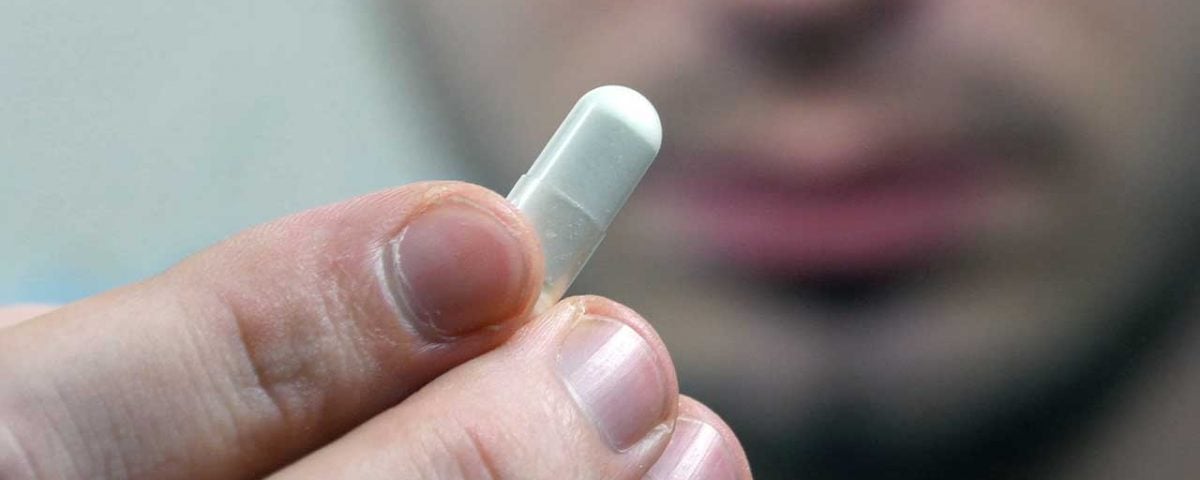So what is Effexor? Also known by its generic name venlafaxine, Effexor is an antidepressant from the serotonin-norepinephrine reuptake inhibitor (SNRI) class. It works by regulating levels of the neurotransmitters serotonin and norepinephrine in the brain. Norepinephrine is a stress hormone that affects parts of the brain linked to attention and response, while serotonin helps control processes like mood, emotions, anxiety, sleep, appetite, and memory. Together, when regulated, these two chemicals work to produce an overall sense of well-being. But we’re all aware of the danger that comes even with prescription drugs, so we can’t help but wonder, is Effexor addictive?
Effexor Uses
Effexor is one of the most popular antidepressants in the U.S. and is most often used to treat depression, anxiety, social anxiety disorder, panic disorder, and sometimes alcohol withdrawal and dependence. Effexor is not prescribed to people with bipolar disorder as it can lead to manic episodes. People taking this medication are also at risk of seizures, and similar to other antidepressants, Effexor is only available with a prescription.
As an inhibitor, Effexor regulates serotonin, norepinephrine, and even dopamine levels by preventing the absorption of these chemicals after they’re released. This allows them to collect between nerve cells in the brain, improving mood and other symptoms. Effexor is usually taken orally in tablet form, two or three times daily.
The extended-release formula of Effexor, or Effexor XR, is only taken once a day, as side effects last for several hours. Dosage will vary depending on the severity of the person’s symptoms and as well as their age, height, sex, and other factors.
Can Venlafaxine Get You High?
You can abuse Effexor, but it won’t produce a high. People who abuse antidepressants like Effexor to get high will find that it’s not possible. An SNRI helps to improve a person’s mood and mitigate symptoms of depression and anxiety by leaving more active neurotransmitters in the brain.
Unlike common drugs of abuse – such as heroin and cocaine – SNRI doesn’t necessarily stimulate a sudden release of chemicals like serotonin and dopamine but rather allows them to collect in the brain. People with depression and other mental health disorders tend to have low serotonin levels, so this action is often helpful in mitigating symptoms. For this reason, an Effexor high is not possible, and venlafaxine abuse may lead to severe side effects.
However, while venlafaxine doesn’t get you high, it can produce several unwanted side effects. Common side effects of Effexor include:
- Tremors
- Difficulty sleeping or insomnia
- Stomach cramps
- Constipation
- Decreased libido
- Flu-like symptoms
- Nausea and/or vomiting
- Chills
- Fatigue
- Erectile Dysfunction
- Drowsiness
- Dizziness
Is Effexor Addictive? Signs to Look Out For
People often engage in Effexor recreational use to get high. Drug-taking behavior may stem from a desire to escape the symptoms of their mental health disorders. Others crush antidepressants and snort them or mix antidepressants and alcohol to experience extreme sedation.
Although you cannot get high off venlafaxine, Effexor is addictive. Unlike heroin or methamphetamine dependence, however, Effexor addiction is more psychological than physical. People who suffer from mental disorders like depression and anxiety might take higher doses of Effexor than prescribed, crush and snort it, or mix it with alcohol to achieve a high or mitigate symptoms of a mental illness.
However, rather than get high, the users might only experience more intense, adverse side effects and even increase their risk of overdose. In addition to physical changes, a person’s behavior and character may also change as they become more dependent on abusing Effexor to feel “normal.” Recognizing these changes can increase the person’s chance of recovery.
Common signs and symptoms of Effexor abuse include:
- Memory problems
- Anxiety and panic attacks
- Depression
- Mood swings
- Vivid dreams
- Hallucinations
- Confusion
- Aggressive behavior
- Suicidal thoughts or behaviors
- Frequently taking higher doses of Effexor than prescribed
- Faking symptoms to get a prescription for Effexor
- “Doctor shopping” or going from one doctor to another to get multiple prescriptions for Effexor
- Experiencing withdrawal symptoms after trying to quit Effexor
- Being unable to quit Effexor despite the consequences of abuse
- Losing interest in personal hobbies and interests
- Withdrawing from loved ones
- Suffering financial, physical, psychological, and relational damage caused by Effexor abuse
- Having cravings for Effexor
- Feeling unable to function normally without Effexor
If you recognize any of these symptoms of abuse in yourself or a loved one, IOP or PHP treatment may be necessary.
Effexor Addiction Treatment
Long-term use of venlafaxine can lead to dependence, which can spin out of control without the direction of a doctor. Although dependence is normal among people who take medications for long periods, psychological addiction is a whole separate issue. In the case of the latter, our Pompano substance abuse treatment center offers various levels of care to help people in all stages of addiction find sobriety.
We offer both illicit and prescription drug addiction treatment at our facility that utilizes various therapy programs to help clients understand the reasoning behind their drug use and develop skills needed to keep them sober in the long run. Our specialists can create an addiction treatment plan for you that’s designed to meet your needs and help you succeed.
For more information about the drug and alcohol treatment programs offered at our Pompano rehab center, call Banyan Treatment Center today at 888-280-4763.
Related Reading:
What is Xanax?
Trazodone Withdrawal: Symptoms, Timeline, & Treatment









